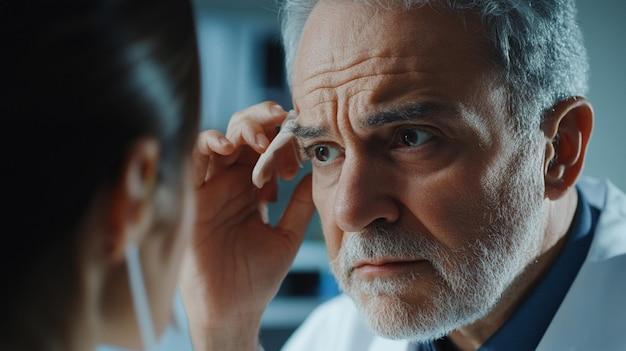When it comes to comprehensive ear, nose, and throat (ENT) care, choosing an experienced ENT doctor can make all the difference. Whether you’re dealing with chronic sinusitis, hearing loss, or even issues with your vocal cords, an ENT specialist is the expert you need.
From thorough evaluations and accurate diagnoses to personalized treatment plans, our ENT specialists are committed to delivering the highest standard of care. Using the latest advancements in medical technology, we offer innovative solutions to relieve pain, improve function, and enhance your overall quality of life.
Importance Of Seeking Specialized Care From An Experienced ENT Doctor
The human body is complex, and specialized care is crucial for ear, nose, and throat health. An experienced ENT doctor, as provided by CT Sinus Center, is trained to diagnose and treat various conditions, from ear infections to sinus issues. Seeking specialized care ensures accurate diagnoses, as ENT doctors are skilled at recognizing subtle differences in symptoms that general practitioners may miss. Additionally, specialists stay updated on the latest treatments and technologies, offering cutting-edge solutions tailored to your needs for improved outcomes and overall care.
Common Ear, Nose, And Throat Conditions Treated By ENT Doctors
ENT doctors treat many conditions affecting the ears, nose, and throat. Common ear issues include ear infections, hearing loss, and tinnitus, especially in children. ENT specialists offer effective treatments to alleviate pain and prevent recurrence.
ENT doctors also frequently address nasal conditions such as sinusitis, allergies, and nasal polyps. Chronic sinusitis can cause persistent discomfort, and specialists evaluate the underlying causes to recommend targeted treatments, including medication, lifestyle changes, or surgery.
Throat conditions like vocal cord disorders, tonsillitis, and sleep apnea are within the scope of ENT expertise. These conditions can significantly affect communication and health, and ENT specialists use advanced diagnostic tools to determine the best treatment options.
Diagnostic Procedures And Tests Used In ENT Care
ENT doctors use various diagnostic tools to understand a patient’s condition. Endoscopy, for instance, allows the doctor to visualize nasal passages or the throat using a flexible tube with a camera, identifying abnormalities contributing to symptoms.
Hearing tests like audiometry assess hearing ability and guide treatment for hearing loss. Imaging studies, such as CT scans or MRIs, provide detailed views of ear, sinus, and throat structures, helping identify underlying issues. Blood tests and cultures from the throat or nasal passages can detect infections or allergies. Combining these methods enables ENT specialists to diagnose accurately and develop personalized treatment plans.
Treatment Options For Ear, Nose, And Throat Conditions
Once diagnosed, an ENT doctor will recommend treatment options tailored to the patient’s condition. Ear issues may be treated with antibiotics, earwax removal, or hearing aids. Nasal treatments could include antihistamines, decongestants, or corticosteroids, with advanced options like balloon sinuplasty for chronic sinusitis or nasal polyps. Throat conditions may be managed with voice therapy, medication, or surgery, while sleep apnea treatments may involve lifestyle changes, a CPAP machine, or surgery. By offering a range of treatments, ENT doctors collaborate with patients to create a comprehensive care plan.
Surgical Interventions Performed By ENT Doctors
For complex cases, surgery may be necessary. ENT specialists perform procedures like tympanoplasty to repair eardrum perforations, restore hearing, and prevent infections. Endoscopic sinus surgery can treat chronic sinusitis or nasal blockages, improving sinus drainage. Tonsillectomy may be recommended for recurrent tonsillitis or sleep apnea caused by enlarged tonsils. Surgical options are discussed collaboratively with the patient to ensure informed decision-making.
Post-Operative Care And Recovery Process
Proper care is vital for recovery after surgery. ENT doctors provide specific instructions based on the procedure, and patients likely experience swelling and discomfort manageable with medication and home care. Follow-up appointments ensure healing is on track, and the doctor may advise on diet, activity restrictions, and signs of complications. Recovery time varies, but following post-op guidelines and staying in touch with the doctor promotes the best outcomes.
Role Of An Experienced ENT Doctor In Managing Chronic Conditions
Chronic ear, nose, and throat conditions can significantly affect quality of life, making ongoing care from an experienced ENT doctor essential. Chronic sinusitis, ear infections, and allergies require tailored treatment plans. ENT specialists offer comprehensive evaluations and long-term management, including regular follow-ups to adjust treatments and educate patients on lifestyle changes to alleviate symptoms. By fostering a strong doctor-patient relationship, ENT doctors empower patients to take an active role in their health, offering education on the condition, triggers, and coping strategies for better overall well-being.
Collaborative Approach In ENT Care: Working With Other Healthcare Professionals
Effective ENT care often involves collaboration with other healthcare professionals, especially in complex cases. For example, sleep apnea patients may work with pulmonologists, and allergy sufferers may be referred to allergists. This multidisciplinary approach allows ENT doctors to create comprehensive treatment plans that address all aspects of patient health, leading to better outcomes. Coordinated care ensures seamless communication among specialists, providing well-rounded support tailored to the patient’s needs. Ultimately, this collaboration enhances patient care, improves health outcomes, and boosts quality of life.
Conclusion: Finding The Right ENT Doctor For Comprehensive Care
Choosing the right ENT doctor is vital for comprehensive ear, nose, and throat care. An experienced ENT specialist ensures accurate diagnoses and effective treatments, especially for chronic or complex conditions. When selecting a doctor, consider their experience, patient reviews, and access to advanced diagnostic tools. A strong, trusting patient-doctor relationship is essential for successful treatment outcomes. You can take proactive steps towards better health and well-beitowardrioritizing specialized care.





